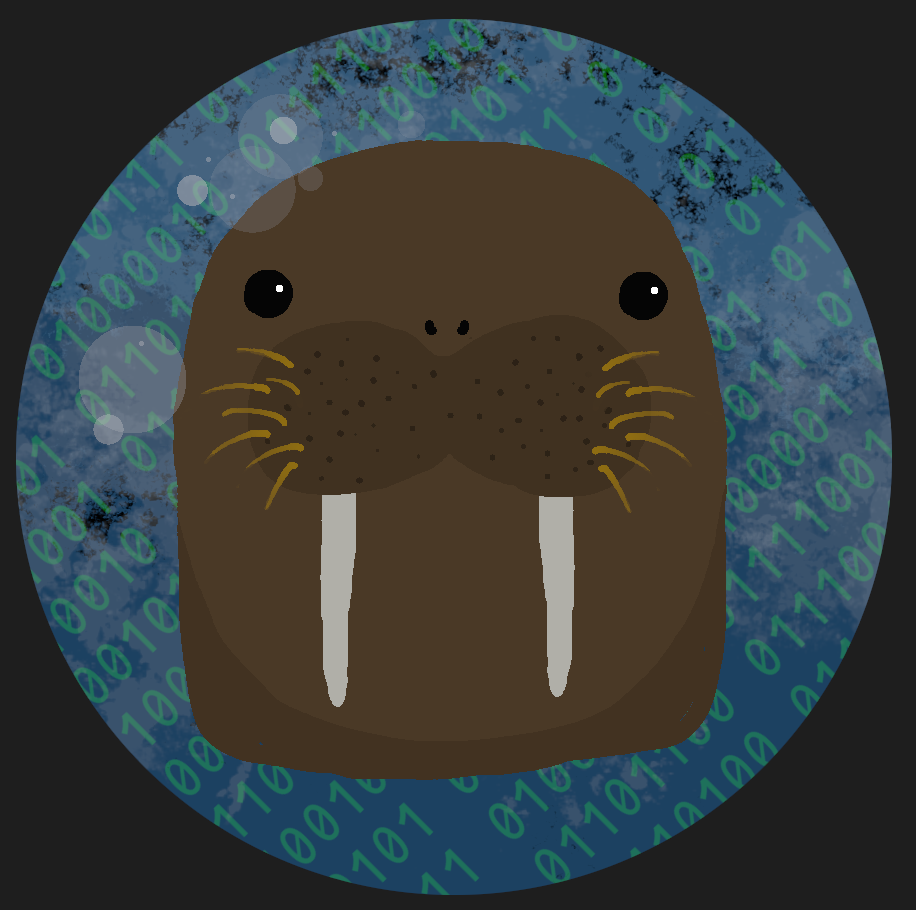I’ve always flunked at math; and knowing how intertwined programming is with math, I’m skeptical of my ability to learn how to code. Can someone be too dumb to learn programming? If it helps, I’m mostly interested in learning Common Lisp.
Title question first: yes, you absolutely can be too dumb to program.
But as others have mentioned, being bad at math isn’t necessarily a deal breaker, especially if you’re taking about the actual arithmetic part of math.
What turns out to be key to programming is breaking down a problem into steps and figuring out the logic to do what you want to do. The computer is going to do the actual arithmetic, but you’ll need to tell it what you want to do step by step.
deleted by creator
Yes. But are most managers too dumb to figure out that you can’t program? Also yes.
I was gonna suggest there might be a “too dumb to program for the profit of others”, but … yeah, even if your pay and code is a financial detriment, we can pretty much promise it’ll be an insignificant portion of the money that company is costing itself. You gotta eat, and practice is practice.
That said, advice remains the same: program on company time towards a path you don’t care about beyond covering your ass and trying to deliver what’s been demanded(I’m not saying don’t do your best, just keep it to what you can do on the clock), and see that as practice for passion projects on the side. Save a little bit of that no-fucks-given/objectivity for objectively testing and fixing your code - fix it like someone else made the mistake, and you can do it better, but at the same time something must ship(don’t let perfect be the enemy of good).
deleted by creator
You’d be surprised how little math is involved in programming that doesn’t require it. A significant majority of programming is simply managing conditionals. For example: “when the door opens, turn on the light.”
Math comes into place when you need it, and hardly ever comes as a surprise. Additionally, solved problems are generally kept in libraries. For example, you don’t need to calculate a sum; simply tell it to calculate a sum for you, because this is a solved problem.
What you’re already running into is called “impostor’s syndrome.” You believe that you are not capable of something to some degree, even though reality says otherwise. You haven’t tried your hand at programming, so why worry now? You’re inventing problems for yourself before you even got a chance to start.
Just go for it and see what you think. If you don’t enjoy it, no biggie. If you do enjoy it, keep going. No obligations 👌
Math is less important than logical thinking which often, but not always, goes with math skills. More important still is intellectual curiosity. Do you like solving puzzles? Do you like the feeling of breakthrough after a frustrating struggle figuring out how something works? Those will take you a long way.
Math knowledge is not essential; but really useful in programming as you’re trying to make the computer do calculations of some sort.
Someone could definitely be too dumb to code though.
Programming success is more closely associated with language skills than math skills.
Yes, if you need to invent a new algorithm you’ll need math. Computer Science is definitely mathematics heavy.
But writing a program is all about expressing your intent in a programming language, step by step. It’s about “communicating” with the machine (and your users).
All this to say, I got C- and D grades in my math courses in college and still became a successful computer programmer. I’m not pushing the boundaries of computation, but if you need an app for your business, I can build that for you in a reliable, tested, and flexible manner.
Edit: Also! I love Common LISP. It’s such an amazing language and I’m so sad that it isn’t more popular in the industry.
But writing a program is all about expressing your intent in a programming language, step by step. It’s about “communicating” with the machine (and your users).
And your coworkers, and ‘you a year from now’. For the love of god have some compassion with ‘you a year from now’ and save him a day of debugging.
80% of programming jobs will only require basic maths.
A lot of the time you’re glueing together libraries written by much smarter people haha
It’s more about logic than maths. People absolutely can find it too hard.
You can be but it’s very rare to find someone that is.
For programming I always tell folks you need 3 skills: adaptability, self-reliance, and strong problem solving (thinking outside of the box, etc)
The most lacking skill I see new students is self-reliance. Learning to do your own research, knowing when to ask for help and when not to, etc.
Like with anything, you will not know if you are going to be good at it until you spend a lot of time trying and failing and learning. If you enjoy it, just keep doing it.
Nah, no need to worry. I’ve got a friend that was bad at math and therefore dismissed a career as programmer initially. Eventually, he just couldn’t ignore how much programming interested him and did start a Bachelor’s degree in Computer Science (after disliking his first year of Finance). A couple of years later and he’s the proud owner of a Master’s degree in Computer Science while still being relatively bad at math, but it didn’t stop him. Nor should it stop you.
I’m glad it worked out for your friend! However, I’ve got to know, why did they choose to pursue Finance of all things if they didn’t like math??
Since childhood, they wanted to become the head of a bank; this wish -however- was more rooted in the (childish/immature) association that being at that position should mean that they’ve made it (monetary-wise). So, they started Finance with the belief that it would be the best step to attain that goal. Furthermore, I believe they had misinformed ideas on what studying Finance was at the time 😅,
I think it depends what you want to achieve? I learned to program to let the computer do the math for me, it’s worked out pretty well so far. I admit I get jealous of the cool visuals, optimizations, and clearer algos people can build with their math experiences, but it certainly hasn’t stopped me from making useable webpages, apps and arduino projects.
I wish I could get my head around programming. I’ve tried learning from books, I’ve tried learning from codecademy, and all I can do is follow the lessons, I don’t understand how I’m supposed to turn all these lines of gibberish into a program that does something. The most common bit of advice I get is “Just make up a project! Find something that you want the computer to do, it’s easy and fun!” And I’m over here like… “OK, how?” It’s like someone pointing to a pile of metal and a welder and saying “Build something!” Sure, someone who knows how to weld can do that, but most people are going to need more information.
You need to pick a project to start out so you have a goal, then from there it’s just google searches for each individual part.
I started learning in High School because I wanted to create a game. I had learned a little bit of Java from a book my dad gave me, but I was kind of in the same spot as you at first where I didn’t know how to do anything other than follow along with the book.
But once I sat down with my goal to make a game, and just started Googling stuff, that’s when it started to click.
Python has easy syntax, so that might be a good place to start. You could google: “Python game library” and it would pull up something like PyGame. Then you could look up “Pygame tutorial” which would give you a baseline on how to set up a window, etc. If you have a hard time with Python fundementals, you could just google “python for loop” or “python functions”.
That’s pretty much what my learning process looked like: start with a goal, google how to get started, google each problem as it comes up. I still follow that same process to this day, and I have a CS degree now.
At the end of the day, it’s a skill just like anything else. Just takes practice. I don’t think anyone is too dumb to learn it, but it depends on how much you want it. If it’s not worth the effort for you then you probably never will.
What I tell people is to find something you regularly do manually, and automate it. I download a lot of torrents, then need to rename the many many files so my media server knows what they are. That’s something that can be automated. A perfect project for someone who’s just learning to program.
Why not try simple scripts at first? You could write a little script in Bash, JS, or Ruby to create folders or text files. Besides the very basic stuff I did on the high school robotics team, my first programming project was when I worked as a print broker and we invested in a digital press. I needed a program to calculate the cost of a print job, so I learned a little BASIC and wrote a program on my TI-98 to do it for me. It would ask a series of questions (eg - paper cost, single / double sided, color / black and white, how many imposed on an SRA3 sheet, etc) and spit out the cost of the job.
As for how you use the code, say you write a ruby script; to run it, you’d navigate to the script directory in the terminal and type ./scriptName.rb to run it. If you’re using a compiled language, you’d compile it (your lessons would cover how to do this) and then you’d run the resulting binary the same way.
Go through the book Automate The Boring Things (Python)
Then AFTER figure out your own projects.
Have too low IQ? Yeah sure, I guess.
Be slower at it than the norm? Absolutely.
I only learned Algebra by learning programming and through that I learned how to think abstractly (abstract just mean “hiding details” - think of how a child draws a car. You can’t tell it’s colour, brand, model, etc, yet you can tell it’s a car, even though all those details are hidden). Once I got that, I was able to follow videos from MIT that taught me more of the maths, giving me a theoretic foundation for programming. Now I’m doing an Algorithm course (also MIT) and feel like an “actual programmer” (because I felt like a “fake programmer” before that - though that still sometimes returns). After that I intend to learn more about SQL because I’m painfully lacking in that regard.
Anyway, I’ve been at it since 2005 when I was a 20-something kid, and there’s always something new to learn.
FYI: I made a dependency graph of a bunch of freely available MIT courses, left is a dependency for stuff on the right: https://thaumatorium.com/articles/mit-courses/
Woah, you feel like an actual programmer? I thought we were all stuck with imposter syndrome forever!
Great definition of abstraction! And thanks for the link.
Removed by mod
Not much to do with maths unless you go into calculation heavy industry. Coding is just problem solving and reading bad documentation 95% 0f the time.
The other 5% is writing bad documentation











